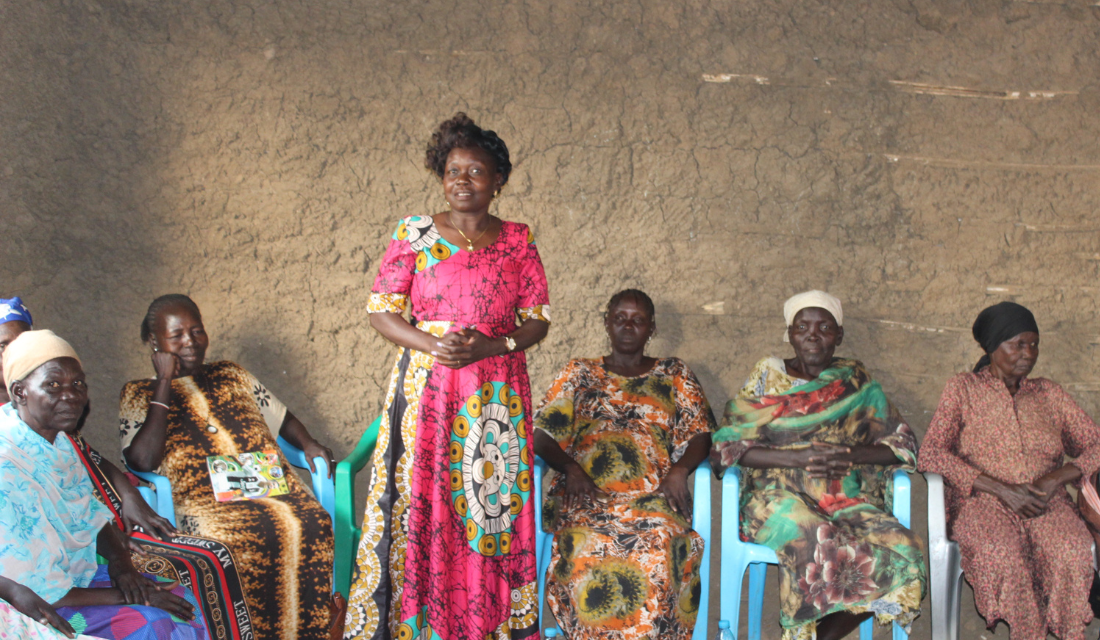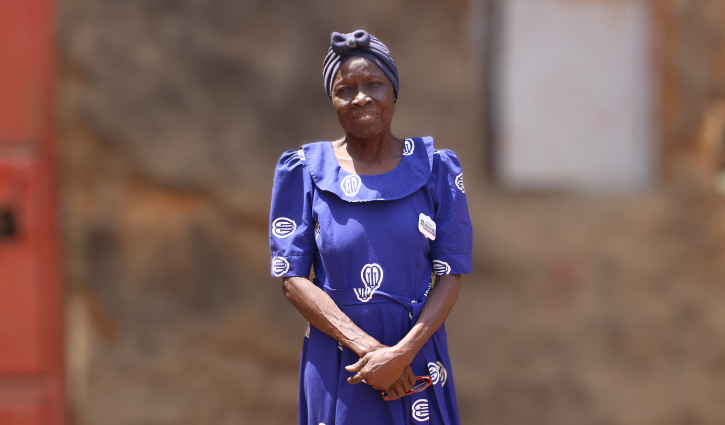How Faith Leaders Help Shift Mindsets Towards Equality in South Sudan

How Local Leaders Are Driving Change in South Sudan
“This program has brought so much change. I can see it already.” —Margaret, Literacy Group Facilitator
In South Sudan, women and girls face daily challenges that limit their opportunities and safety. But communities are coming together to change that.
Episcopal Relief & Development, in partnership with Mothers’ Union South Sudan, works in 24 communities to reduce violence against women and girls and promote equality.
Community-led change in South Sudan
This locally-led program helps individuals and families reflect on harmful behaviors and social norms. Through facilitator-led literacy circles, communities have open conversations about equality, conflict resolution, and social inclusion.
What does a literacy circle look like?
- Safe spaces for women and men to talk about important issues.
- Small groups of 30 participants or fewer to ensure everyone’s voice is heard.
- Accessible locations that members help choose—a church, community centers, or even under the shade of an old tree.
- Practical learning, with chalkboards, materials and resources to support literacy and life skills.
At least 70% of participants in each group are women, ensuring their perspectives lead the way.
Stories of impact

Margaret, a facilitator from St. James Parish, has already seen a shift.
“When women from my group go home, they know their rights,” she shared. They tell their children that all are equal. Boys can collect water and sweep just like the girls.”
Alex, a literacy group facilitator in the nearby Djeri community, shares, “In the Mundari culture…traditionally, women are excluded [from important decisions]. So far, I have seen ten households that are starting to change…[such as including women in discussions about dowries, resources, inheritance rights…and highly personal things like when to go to the hospital during pregnancy. These are big changes.”
Engaging faith and community leaders
Faith leaders are trusted voices in their communities. Recently, Christian, Muslim, and traditional faith leaders from the program’s 24 communities participated in a five-day workshop to examine traditional belief systems around equality and social inclusion.
They use inclusive teachings to support equality in ways that respect local traditions. Leaders become advocates for change, speaking out in their communities and encouraging new social behaviors.
Changing one mindset at a time
True social behavior change starts with the individuals. Sarah, a facilitator from St. Paul’s Parish in Juba, sums it up:
“You have to start with one person—yourself. Then you can help others to change.”
Support our work
Together, we can create safer, more inclusive communities. Support the work of Episcopal Relief & Development and be part of lasting change.


